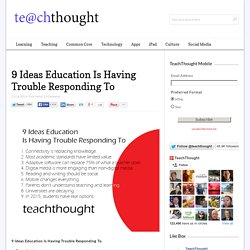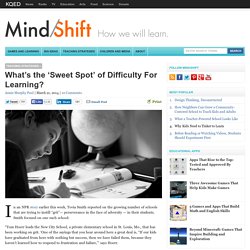

A Path Forward: Recommendations from the classr. The Habits We Most Want to Foster, or The Essential Seven. Four Reasons Why Argument is Priority #1. You probably don’t need me to tell you that argument writing is a hot topic in education — it has a special place in the Common Core State Standards (CCSS) and it is writing anchor standard number 1 for a reason.

However, some teachers are asking if we really should no longer teach persuasive writing to our upper grade students. I have many fond memories of teaching persuasive writing. Students love discussing and debating their point of view, and it has the capacity to pull in reluctant writers because most students don’t have trouble writing about their position on controversial issues. Also, persuasive writing has traditionally been required on high-stakes assessments such as the ACT. This is all good stuff, so why should we switch from persuasive to argument writing? Here are four reasons to make the switch from persuasive to argument writing for grades 6-12: 1. 2. 3. 4. Educators to state: Let's go above Common Core. By Clayton WoullardYourHub Reporter Posted: 03/06/2014 12:01:00 AM MST|Updated: about a month ago Anita Stapleton, of Pueblo, an opponent of Common Core educational standards holds up a sign with photos of her two kids that are in high school.

Stapleton was in front of the Colorado Department of Education offices on E. Colfax Ave. on Wednesday, February 12, 2014 providing info against the Common Core program. (Cyrus McCrimmon, The Denver Post file) School buses in Douglas County. Douglas County educators are among those who don't want the state to implement the national Common Core standards, but their objections have less to do with money and local control than with high standards. As in, the Common Core State Standards aren't high enough. "We feel like there's a problem with it being the beginning of the conversation and not to the rigor that we want our students to aspire to," said district superintendent Elizabeth Celania-Fagen. (Denver Post file photo) Disrupting Education: 8 Ideas That Will Break It Once And For All. 9 Ideas Education Is Having Trouble Responding To by Terry Heick Ed note: This post has been updated from a post we published this summer.

As education changes, it depends primarily on internal catalysts for that change. That is, the “things” that change it are on the “inside” of that system itself, most notably data, assessment, PLCs, and running a distant fourth, technology. It’s interesting that technology is among the least impacting “agents of change” in the classroom. At some point, this will change. 1. Or rather usurping it in terms of sheer credibility.
Businesses, education institutes, groups, organizations, people—everyone wants visibility and access. What do I know, and what should I do with what I know? How can I use those things I am connected to and with to live the kind of life I want to live? Knowledge will always matter, but in an economic sense of supply and demand, information is boundless. 2. 3. 4. Think about YouTube. 5. Is College for Everyone? An Introduction and Timeline of College in America. The Key To Innovation: Making Smart Analogies. The following is the transcript of the closing keynote speach at Sandbox Summit, a fantastic annual conference that brings together all kinds of people interested in kids, technology and learning.
I want to talk today about how we build bridges between old ideas and new ideas, between concepts that are close to home intellectually and those that are far afield. Because it is these bridges, these connections, that produce innovation. There’s a popular notion that innovation arrives like a bolt out of the blue, as a radical departure from previous knowledge—when really, most new ideas are extensions, twists, variations on what’s come before. The skill of generating innovations is largely the skill of putting old things together in a new way, or looking at a familiar idea from a novel perspective, or using what we know already to understand something new. What’s the ‘Sweet Spot’ of Difficulty For Learning? In an NPR story earlier this week, Tovia Smith reported on the growing number of schools that are trying to instill “grit”— perseverance in the face of adversity — in their students.

Smith focused on one such school: “Tom Hoerr leads the New City School, a private elementary school in St. Louis, Mo., that has been working on grit. ‘One of the sayings that you hear around here a great deal is, “If our kids have graduated from here with nothing but success, then we have failed them, because they haven’t learned how to respond to frustration and failure,”‘ says Hoerr. After years of focusing on the theory known as ‘multiple intelligences’ and trying to teach kids in their own style, Hoerr says he’s now pulling kids out of their comfort zones intentionally.
‘The message is that life isn’t always easy,’ Hoerr says. It is a major adjustment for everyone.”